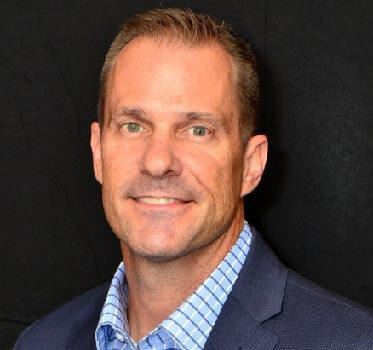In the nuanced chess game of negotiation, the line between success and setback often hinges on your ability to hear or read what someone is saying and to see it for what it actually is: a tactic.
Seasoned negotiators will use tactics to get you to do what they want. These tactics can be the iceberg to your Titanic if you're not prepared for them ahead of time.
Two specific tactics can really derail you if you're not prepared for them:
- Lower/Higher Authority
- Best and Final Offer
Let's take a look at both of these in a bit more detail, and I'll also share my proven counterstrategies that will protect you—and your margins—against them.
Lower/Higher Authority
This is a scenario many negotiators will recognize: You're making headway in a discussion. Suddenly, your contact throws in a curveball.
"I need to run this by my boss."
Of course, it won't always be their boss. It could be a spouse, a coworker, or even another department. Regardless, it's somebody you hadn't anticipated having a say in the matter at all.
The Lower/Higher Authority tactic is designed to put you on the defense against somebody you can't talk to, making them the bad guy. Oftentimes, it's nothing more than a stall.
How To Beat Lower/Higher Authority
First, if you're running into this tactic at all, you might have been able to do a much better job ahead of time uncovering your prospect's decision-making process and the cast of characters involved.
However, seasoned negotiators might use this tactic regardless.
ARA
First, we can use the following acronym:
- A - Acknowledge
- R - Reassure
- A - Ask a question
Start by acknowledging their statement. Next, reassure them that this situation isn't unusual. Finally, ask them a question like, "If you run this by your boss and they put it back on you, what will you say?"
Struggle and Redirect
Now you'll help them prepare to sell you to that other person. Or, if not, you'll uncover that you're not their first choice and stop wasting your time and theirs.
Ask something like, "Is this something you're ready to hang your hat on?" Be sure you're genuinely curious and ready to help.
Concessions
It may be that you need to give something to get something. Instead of closing the deal, focus on closing the next step. Get a meeting set up with the new player, and go from there.
Best And Final Offer
Unlike the "Lower/Higher Authority" tactic, the "Best and Final Offer" tactic is a blunt instrument.
Picture this: You've sent your proposal, and the reply is a demand for you to send over a new proposal with your lowest price.
While frustrating, this is a very common tactic.
How To Beat Best And Final Offer
Respond to their blunt instrument strategically.
Acknowledge what they've said to you and reassure them that the proposal you've sent offers the best value considering their specific needs. Then, ask them a question that places the burden back on them.
That could look like this: "Thank you for asking for a revised proposal. I appreciate you sharing this with me. I can assure you that based on your needs that we discussed and the deliverables we created together, this is the best value for your investment. Can we schedule a phone meeting?"
Once again, we've focused on a clear next step, which is continuing the conversation.
Be Prepared, Be Strategic
In any negotiation, the key is not to be reactive but to be strategic. Understanding these tactics ahead of time and having a clear, structured system for responding is vital.
For more in-depth strategies and real-life examples, check out my book, Negotiating from the Inside Out. And if you face sales or negotiating challenges, our team is ready to help you navigate through those.

Clint Babcock
Clint has nearly 25 years of experience developing and directing organizations' recruiting and sales strategies, as well as coaching and mentoring "C-level" executives. His expertise is in training inside and outside consultative sales teams in new business development, profit and loss management, sales compensation, key account management, and product/service positioning. Specialties include corporate sales training, public speaking, hiring assessments, and business development structuring.






